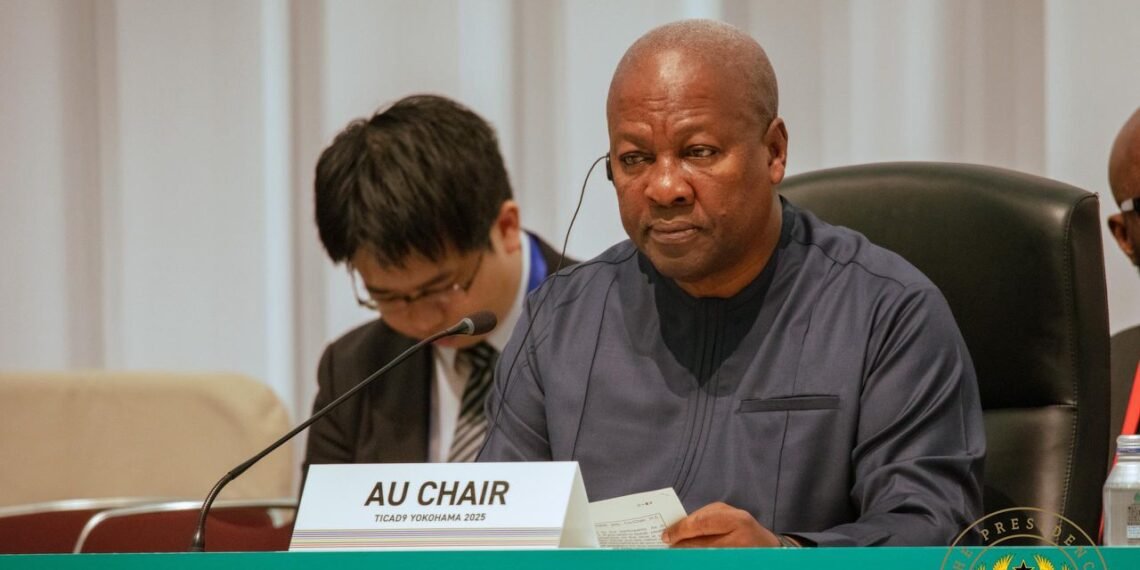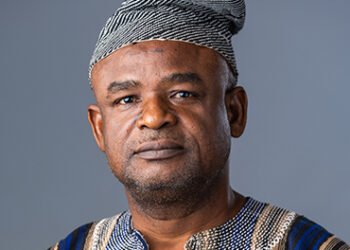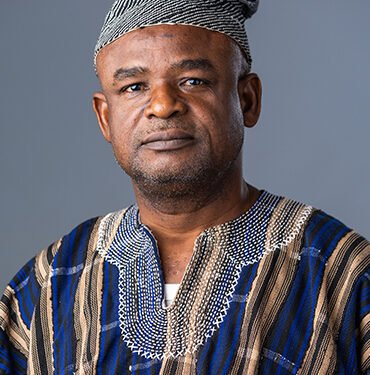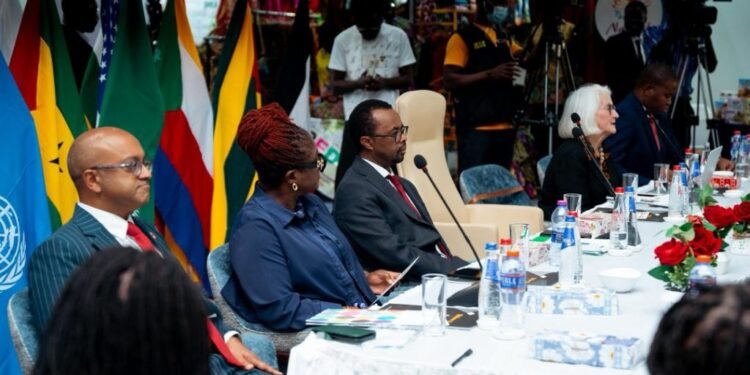President John Dramani Mahama has underscored the urgent need for African governments and investors to diversify economies by channeling resources into youth-driven startups and non-traditional sectors, warning that failure to act could turn the continent’s youthful population into a liability rather than an asset.
Speaking at the Private-Public Business Dialogue during the Ninth Tokyo International Conference on African Development (TICAD-9) in Yokohama, Japan, President Mahama stressed that Africa’s changing demographics make it impossible to ignore the role of young people in shaping the future.
“The answer is simple, the demographics have changed, and the majority of the population in Africa is youthful. There’s no way you can grow a successful economy without investing in the youth. If you take the age category of between 16 and 35, they form 60% of Africa’s population. That is not a demographic you can ignore.”
President John Dramani Mahama
He noted that the global economy itself is shifting toward knowledge and innovation, with young people leading the charge into sectors that fall outside traditional areas such as agriculture and manufacturing.
“The youth are interested in certain sectors that are not the traditional sectors. And so in the creatives, in the renewable energy space, even if they go for traditional sectors like agriculture, they’re looking at agri-tech and other knowledge-driven aspects of those traditional sectors.”
President John Dramani Mahama
According to the President, Africa is already witnessing this transformation, with startups attracting billions of dollars in investment. He cited figures from 2024, when $4.2 billion was invested in startups across the continent, with fintechs alone taking nearly half of the total.
“The fintech space is growing at an astronomical rate in Africa, mainly driven by smart, tech-savvy youth who have seen openings and are taking advantage of it,” he said. Ghana, he explained, offers a clear example of how economic structures are evolving. By 2015, the services sector had overtaken agriculture and manufacturing to become the largest contributor to the country’s GDP.
He pointed to innovative approaches in fintech and agri-tech as evidence of how youth-driven initiatives are solving long-standing problems more effectively than government-led programs. President Mahama shared his experience with a Ghanaian agri-tech company that developed a platform to streamline government support to farmers.
“We had a shot-in-the-dark approach, distributing fertilizers and inputs, and you couldn’t tell who exactly those inputs were going to or whether you were getting value for money. These young people set up a fintech.
“They gave mobile phones to farmers, distributed the agricultural inputs based on their acreage and their need. Because they had them on the platform, they could send credit to them by mobile money. At the end of the season, they could go directly to the farmer and offtake their production. That changed it completely.”
President John Dramani Mahama
This model, he explained, not only improved efficiency but also allowed farmers to build credit scores, creating a system where lenders could identify creditworthy farmers and extend loans accordingly. “It’s changed the face of agriculture in our country,” he emphasized.
Creative Sector and Renewable Energy
Beyond agriculture, President Mahama pointed to the creative sector and renewable energy as spaces where youth startups are creating jobs at a much faster rate than traditional industries.
“If you take the creatives, renewable energy, and those spaces, they add about four jobs before you can create one job in agriculture or manufacturing. Investing in those sectors means that we can absorb more of the myriad of young people who are coming out of school.”
President John Dramani Mahama
The President stressed that Africa’s job creation challenge is immense, with the continent needing to provide between 12 and 15 million jobs annually to keep pace with its rapidly growing population. Traditional sectors alone, he argued, cannot meet this demand.
“You cannot create that in manufacturing and industry and agriculture alone. But the rate at which the creatives and digital space add jobs is much faster than the traditional economy. So it’s a place that we must invest as governments in order that we can absorb more of the youth.”
President John Dramani Mahama
While the youth bulge has often been framed as an advantage for Africa, President Mahama issued a warning that it could quickly turn into a source of instability if governments and the private sector fail to respond adequately.
“We say the youth bulge or the huge youth population in Africa is an advantage. But if we do not create enough jobs fast enough to absorb those young people coming out, then it will become a gunpowder keg and it could consume us”.
President John Dramani Mahama
President Mahama’s remarks at TICAD-9 reflect a broader push by African leaders to position youth entrepreneurship and digital innovation at the centre of economic policy.
His call reinforces the view that Africa’s future prosperity lies not only in industrialization but also in embracing the new economy being shaped by the continent’s young, dynamic, and tech-savvy population.
READ ALSO: Europe To Shoulder Greater Responsibility for Ukraine’s Security Guarantees























